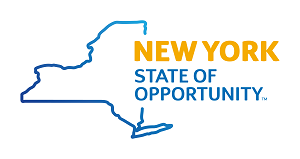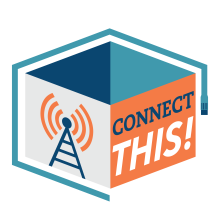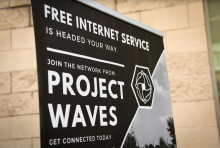
Fast, affordable Internet access for all.

Massachusetts and New York officials hope to entice affordable housing property owners with new grant programs that would pay the retrofitting costs to expand high-speed Internet connectivity into decades-old affordable housing developments.
The programs aim to focus on the multitude of multi-dwelling units (MDUs) in those states, particularly housing developments built before the advent of the Internet.
With property owners and Internet service providers (ISPs) often reluctant to pay the costs of getting these buildings up to broadband speed, Massachusetts and New York have launched initiatives – using a portion of their federal broadband funds – to chip away at the digital divide in housing developments where a significant number of tenants live in buildings not wired to support reliable broadband or where the service is not affordable, thanks to agreements with monopoly providers.

New York Bytes Into Broadband Affordability
In December, New York Governor Kathy Hochul’s office announced the state’s ConnectALL Office (CAO) was setting aside $100 million New York State received from the federal Capital Projects Fund (courtesy of the American Rescue Plan Act) to bring broadband connectivity to 100,000 affordable housing units across the Empire State.
In announcing New York's Affordable Housing Connectivity Program, Hochul said:
“With work, school, and essential government services going digital, affordable homes need affordable, reliable broadband, and this funding will help bolster our efforts to build housing equipped with the basic tools that New Yorkers need to succeed.”

This week on the show we're featuring an episode of our new Building for Digital Equity podcast, which looks at how organizations and individuals around the country do work at the intersections of broadband infrastructure, affordability, access, and skills. From frontline specialists helping households sign up for the Affordable Connectivity Program to building small, digital equity-minded ISPs in Arizona, this series showcases the work and lessons from those helping folks get and stay connected in our communities and towns.
On this episode of the podcast, we talk with Brandon Forester - the National Organizer for Internet Rights at Media Justice. Christopher and Brandon talk about helping communities build more agency over how technology shows up in their neighborhoods and among the digital communities they create for themselves. He shares how Media Justice came to prioritize prison phone justice as one of its first issues, what organizing is and how local solutions may differ across communities, and the need to avoid purity politics in doing digital equity work.
This show is 20 minutes long and can be played on this page or using the podcast app of your choice with this feed.
Transcript below.
We want your feedback and suggestions for the show-please e-mail us or leave a comment below.
Listen to other episodes here or see other podcasts from the Institute for Local Self-Reliance here.
Thanks to Joseph McDade for the music. The song is On the Verge and is used per his Free-Use terms.

Brandon Forester is the National Organizer for Internet Rights at Media Justice. We talk about organizing for digital equity and more specifically Brandon's vision for communities having agency over how technology shows up in their neighborhoods and digital communities. We discuss how Media Justice came to prioritize prison phone justice, what organizing is and how local solutions may differ in different communities, and the need to avoid purity politics in doing this work.
This show is 20 minutes long and can be played on this page or using the podcast app of your choice with this feed.
Transcript below.
We want your feedback and suggestions for the show-please e-mail us or leave a comment below.
Listen to other episodes here or see other podcasts from the Institute for Local Self-Reliance here.
Thanks to Joseph McDade for the music. The song is On the Verge and is used per his Free-Use terms.

Join us Wednesday, June 7th at 5pm ET for the latest episode of the Connect This! Show. Co-hosts Christopher Mitchell (ILSR) and Travis Carter (USI Fiber) will be joined by regular guests Kim McKinley (UTOPIA Fiber) and Doug Dawson (CCG Consulting) to talk about all the recent broadband news that's fit to print.
Email us at broadband@communitynets.org with feedback and ideas for the show.
Subscribe to the show using this feed or find it on the Connect This! page, and watch on LinkedIn, on YouTube Live, on Facebook live, or below.
Maryland officials have announced that the state is doling out $92 million in new broadband grants to expand access to affordable broadband. The latest round of funding was made possible via the Connect Maryland Network Infrastructure Grant Program, and will help expand broadband access to 14,500 unserved locations statewide.
According to a state press release, this latest round of funds should help fund portions of 35 different projects scattered around the state. A full breakdown of award winners indicates that while Comcast and Verizon secured $14.4 million and $11 million respectively in new funding, smaller ISPs and cooperatives were, unlike in many states, well represented.
Quantum Telecommunications, a smaller local ISP founded in 1995, was slated to receive $15.3 million in funding to connect 1,693 locations to broadband. Choptank Electric Cooperative, first founded in 1938, was among the biggest award winners, receiving $16 million to deliver broadband to 1,693 locations currently lacking broadband access.
*This is the first installment of an occasional profile on Local Community Broadband Champions where we focus not so much on the technology, construction, and financing of a community network build, but on the personalities of the people who make it happen.
When Devin Weaver isn’t vibing at the Otto Bar or checking out the underground music scene at Metro Gallery, or even playing his bass guitar at home, the 28-year-old network engineer enjoys spending time amid the web of wires in storage closets inside low- and mixed-income apartment buildings dotting the city’s landscape.
It’s where his network design handiwork all comes together, snaking through the buildings to the routers installed in individual apartment dwellings, enabling residents to get gig speed Internet service.
That’s on par with what the regional monopoly provider Comcast offers city residents who can afford it. But in the buildings that Devin has made his technical playground, hundreds of financially-strapped households who subscribe to the fledgling community network he oversees get it for free – thanks to the philanthropy of dozens of organizations including the Internet Society Foundation, the France-Merrick Foundation, and the Digital Harbor Foundation.

Born and raised in Baltimore, Devin works for Project Waves, a non-profit organization founded in 2018 by an old high school classmate of his, Adam Bouhmad, to bring broadband to mostly low-income households in Baltimore City.
A Small, Rising Wave of Connectivity
In the heart of Maryland's Eastern Shore – a place Forbes Magazine considers one of the “Top 5 Coolest Towns to Buy A Vacation Home” – a fiber-to-the-home project is making the region an even cooler place to live.
Building on its historical allure and 600 miles of Chesapeake Bay waterfront views, state, county and local utility officials are making a multimillion-dollar investment to transform Talbot County’s half dozen towns (and a handful of other unincorporated communities) 40 miles east of Annapolis into a far more attractive place to live, work, and play. To do that, they are relying on Easton Utilities, the county’s seat long-standing municipal utility, to expand high-speed Internet access into the most rural reaches of the region.

In March, the Talbot County Council unanimously approved allocating $1.75 million of its American Rescue Plan Act funds to help bring fiber Internet connectivity to the hardest-to-reach parts of the county. That funding comes on the heels of Easton Utilities being awarded federal and state grant funds totaling $26 million, with the bulk of that going toward a fiber network expansion project known as Connect Talbot, while a portion is being used to upgrade its existing hybrid fiber-coax system.
With construction crews now working to extend Easton Utilities fiber backbone further out into the county, the utilities’ subsidiary – Easton Velocity – is already offering service to over 100 new subscribers.
This week, we bring you a special field report from Maryland-based radio and podcast producer Matt Purdy. Through interviews with citizens, digital equity advocates, and the city's new Director of Broadband and Digital Equity, Purdy documents the connectivity struggles that have persisted in Baltimore's historically marginalized neighborhoods for decades.
Those challenges have only become more pronounced with the pandemic, prompting local officials to begin making moves in the direction of something we've not yet seen in a community the size of Baltimore: building a city-owned, open access fiber network.
This is a great story, so we won't give anything else a way. Listen below, or here.

This week on the podcast, radio producer Matt Purdy reports a story on Baltimore’s efforts to build a municipal broadband network that prioritizes equity for historically marginalized communities.
This show is 13 minutes long and can be played on this page or via Apple Podcasts or the tool of your choice using this feed.
Transcript below.
We want your feedback and suggestions for the show-please e-mail us or leave a comment below.
Listen to other episodes here or view all episodes in our index. See other podcasts from the Institute for Local Self-Reliance here.
Thanks to Arne Huseby for the music. The song is Warm Duck Shuffle and is licensed under a Creative Commons Attribution (3.0) license.
The Dover Bridge is the span of infrastructure that crosses the Choptank River into Maryland’s Eastern Shore. But it’s the Choptank Electric Cooperative that’s building a bridge across the digital divide in the rural reaches of the region.
Building on the fiber backbone that connects the co-op's smart grid, the member-owned cooperative began construction of a fiber-to-the-home network (FTTH) last year that will reach all 54,000 of its members spread out across nine counties. Now subscribers are being lit up for service as the co-op continues to extend the network.
Thanks to the passage of the “Rural Broadband for the Eastern Shore Act” in May of 2020, it paved the way for the co-op to create a wholly-owned subsidiary known as Choptank Fiber. Moving quickly, in April of 2021, just two months after network construction began, Sherry Hollingsworth – whose grandfather was the first to get electricity through the co-op back in 1939 – became the first member to get service.
At the ribbon-cutting ceremony outside her home in Denton, a town in Caroline County a little over an hour's drive from the nation's capital, Hollingsworth told The Star Democrat she was “honored” to be Choptank Fiber’s first subscriber because, like many households in and around the Eastern Shore, “we have struggled with our personal service and our business service for many, many years.”